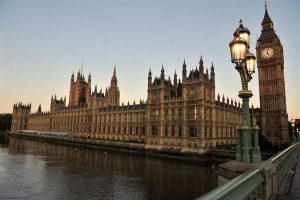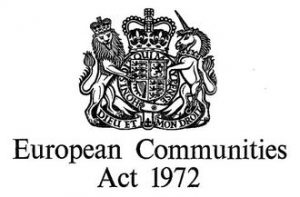By Dr Clair Gammage, Lecturer in Law (University of Bristol Law School).
 In the Prime Minister’s speech of 17 January 2017, in which the Brexit trade negotiation strategy was announced, Theresa May was keen to reassure the world that a ‘Global Britain’ would rise from the ashes of the now infamous June referendum. Outlining twelve core objectives to be pursued in the process of withdrawal from the EU once Article 50 has been triggered, May revealed little substantive detail about what the UK wants from the EU and, indeed, from the rest of the world. Underpinning the strategy is the first objective of “certainty” – certainty for industries, for workers, and for the general population. We now know that the European Communities Act will be repealed but EU law will be translated into the UK legal system. Of course, it is then the choice of Parliament to decide which laws stay and which laws go – presumably depending on the extent to which those laws reflect our Global British values according to the legislature. Will the first objective of “certainty” allay the fears of industry, the public sector, and the general population? The answer to this question rests entirely on the way in which the negotiations are handled from this moment on. So, what does the speech tell us in terms of the post-Brexit trading strategy?
In the Prime Minister’s speech of 17 January 2017, in which the Brexit trade negotiation strategy was announced, Theresa May was keen to reassure the world that a ‘Global Britain’ would rise from the ashes of the now infamous June referendum. Outlining twelve core objectives to be pursued in the process of withdrawal from the EU once Article 50 has been triggered, May revealed little substantive detail about what the UK wants from the EU and, indeed, from the rest of the world. Underpinning the strategy is the first objective of “certainty” – certainty for industries, for workers, and for the general population. We now know that the European Communities Act will be repealed but EU law will be translated into the UK legal system. Of course, it is then the choice of Parliament to decide which laws stay and which laws go – presumably depending on the extent to which those laws reflect our Global British values according to the legislature. Will the first objective of “certainty” allay the fears of industry, the public sector, and the general population? The answer to this question rests entirely on the way in which the negotiations are handled from this moment on. So, what does the speech tell us in terms of the post-Brexit trading strategy?
There are two key aspects of the trade strategy going forward: withdrawal from the EU and a renegotiation of our terms with the EU; and, the UK’s trading relationship vis-à-vis the rest of the world which will take the form of WTO compatible free trade agreements (FTAs). FTAs are economic spaces in which the countries to the arrangement reduce tariffs on substantially all the trade that falls under the agreement but each individual member retains its own external tariff with other countries on those goods. The first and second limbs of the trade strategy are interrelated and once Article 50 has been triggered a new form of foreign policy-making that I have (rather tongue-in-cheek) coined “Global Britain external relations law” will begin to manifest. (more…)









